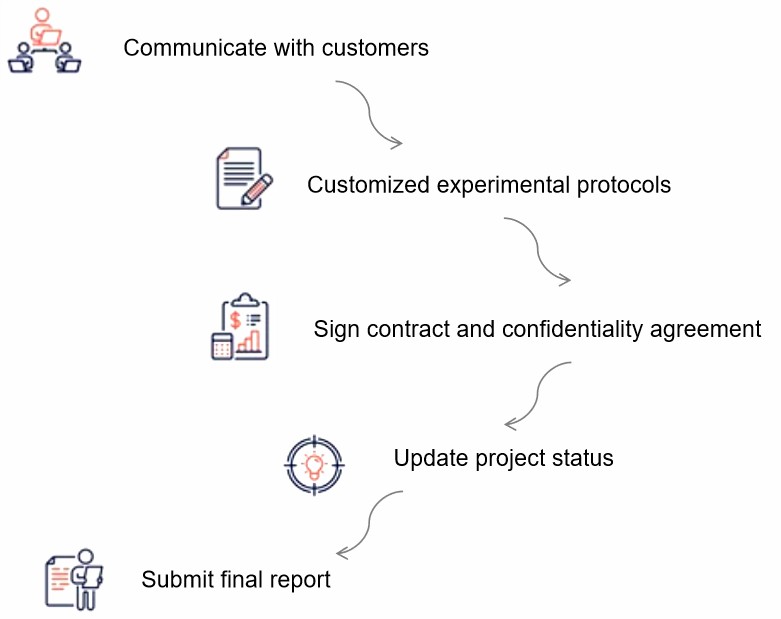Detection of Plant Cell Death
Plant cell death is a crucial aspect of plant development, responding to various internal and external stimuli. Understanding the mechanisms and patterns of plant cell death is paramount for unraveling the intricacies of plant biology. Qualitative detection of plant cell death plays a pivotal role in this endeavor, providing researchers with insights into the underlying molecular processes that orchestrate life and death in plant cells.
Lifeasible has extensive experience in cell biology research. Relying on our advanced technology platform and professional research team, we aim to provide customers with practical solutions for determining plant cell death. We play an essential role in helping researchers decode the language of plant cells and unravel the mysteries of life and death in the green world by employing a variety of assays.

Detection Methods of plant cell death
- Morphological analysis. Morphological analysis remains a cornerstone in the qualitative detection of plant cell death. Techniques such as light and electron microscopy enable researchers to observe cellular changes associated with cell death. Notable morphological hallmarks include chromatin condensation, cell shrinkage, and the formation of apoptotic bodies.
- Fluorescence microscopy. Fluorescence microscopy, coupled with vital dyes and probes, offers a powerful tool for visualizing specific cellular events associated with plant cell death. Annexin V, propidium iodide, and TUNEL assays, among others, enable the precise identification of apoptotic and necrotic cells, providing researchers with a detailed spatial and temporal understanding of cell death processes.
- Biomolecular markers. Advancements in molecular biology have introduced a myriad of biomolecular markers for the qualitative detection of plant cell death. Detection of DNA fragmentation using gel electrophoresis, analysis of mitochondrial membrane potential, and monitoring the expression of cell death-related genes through techniques like RT-qPCR contribute to a comprehensive understanding of the molecular signatures associated with plant cell death.
- Imaging techniques. We utilize sophisticated imaging techniques, such as confocal microscopy and live cell imaging, that can be effectively applied to the qualitative detection of plant cell death. This technique can track the dynamics of the cell death process with high spatial and temporal resolution.
Significance of Qualitative Detection of Plant Cell Death
- Understanding developmental processes. Qualitative detection of plant cell death is instrumental in unraveling the intricate balance between cell proliferation and death during various stages of plant development. Insights gained from such studies contribute to elucidating critical regulatory pathways governing organ formation, senescence, and response to environmental stimuli.
- Stress response mechanisms. Plants encounter many stress factors, including pathogens, drought, and temperature extremes. Qualitative detection of plant cell death aids in deciphering the stress response mechanisms, enabling the development of resilient crop varieties and strategies for mitigating the impact of environmental stressors on plant health.
- Biotechnological applications. The knowledge derived from qualitative detection of plant cell death has far-reaching implications in agriculture and biotechnology. It provides a foundation for developing genetically modified crops with enhanced disease resistance, improved shelf life, and optimized yield potential.
- Disease diagnosis and management. In plant pathology, qualitative detection of cell death is pivotal for diagnosing and managing plant diseases. Early detection of pathogen-induced cell death allows for prompt intervention and implementation of effective disease control strategies, thereby safeguarding crop yield and quality.
Our services workflow

Lifeasible has always followed the direction of advanced technology, and we utilize various technologically advanced methods to determine plant cells efficiently and accurately. In addition, we offer a full range of other plant analysis services to meet your needs. If you are interested in us, please feel free to contact us.
For research or industrial raw materials, not for personal medical use!

